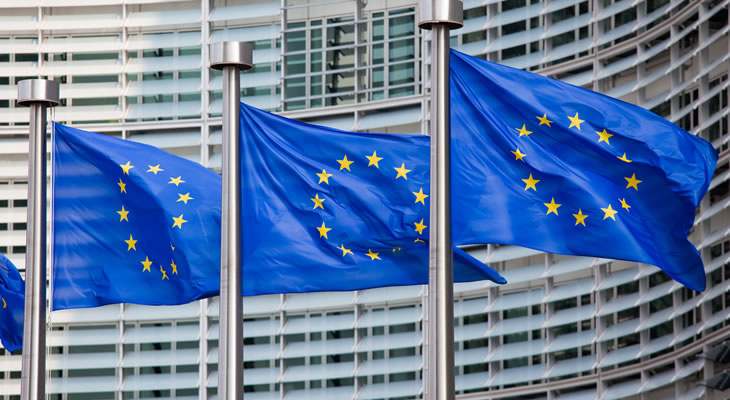The Euro to Pound Sterling (EUR/GBP) exchange rate weakened last week as poor economic data out of the Eurozone’s largest economies and a major terrorist incident in France weighing upon the single currency.
Euro to Pound Sterling (EUR/GBP) Exchange Rate Weakened by Eurozone Inflation Data
Increasing speculation that the European Central Bank (ECB) will introduce new monetary easing measures including a full-scale quantitative easing programme were heightened last week as data showed that the annual rate of Eurozone inflation fell by 0.2% in December and industrial activity in Germany and France declined.
According to industry expert David Barley; ‘The Eurozone still isn’t experiencing deflation, or a downward spiral in prices fueled by expectations that goods and services will be cheaper in future. December’s decline in headline inflation to minus 0.2% from 0.3% in November was driven by lower energy prices, which fell 6.3% on the year, and a drop in food prices, down 1%. That should be a boon to cash-strapped consumers.’
Data showed that German industrial production unexpectedly declined for the first time in three months in November as energy output declined. The data suggests that a recovery in the Eurozone’s largest economy remains weak. Exports out of the nation were also shown to have declined for a second consecutive month falling by 2.1%.
French industrial production also fell unexpectedly in November with a sharp decline in manufacturing production, figures from statistics bureau Insee showed Friday. Industrial production in the Eurozone’s second largest economy slipped 0.3% in November from October, while analysts polled by the Wall Street Journal had expected a 0.2% rise. Manufacturing output, which is a closely watched component of the overall figure, recorded an even sharper decline, down 0.6% on the month.
The Pound meanwhile made gains from economic data, which showed that UK balance of trade data came in better than forecast and as manufacturing output beat expectations. Manufacturing output across the UK rose by 0.7% in November, and was 2.7% higher than a year ago.
Euro to Pound Sterling (EUR/GBP) Exchange Rate Forecast
The Euro to Pound Sterling (EUR/GBP) exchange rate is forecast to experience further declines next week as the markets will grow increasingly jittery as the Greek general election and ECB policy meeting draws nearer.
As stated by The Guardian; ‘A victory for [opposition party] Syriza will be viewed as a triumph for people power and, in the short term at least, a successful rebellion against the intellectually bankrupt pursuit of never ending austerity. There will be many in Europe who will cheer. At the very least, another period of uncertainty will begin, delaying the much prayed-for recovery in the Eurozone’s economic fortunes.’
On Tuesday, data out of Italy is likely to come in poorly and UK inflation data is forecast to show signs of improvement, a contrast to weakening Eurozone inflation.
Wednesday will see the release of Eurozone Industrial production, which is expected to show weakness as production in Germany, France and Italy, fell.
On Thursday the regions latest of balance of trade data will be published and the trade surplus is expected to shrink from the €24 billion seen in October to €19.7 billion in November.
Friday too is expected to send the Euro falling as inflation data out of Germany and the Eurozone is expected to confirm a decline.
On Sunday the Euro to Pound Sterling (EUR/GBP) was trading in the region of 0.7810

